![[Conversation] APTO Co., Ltd. x Daivic Annotation Co., Ltd. x Africa. “Japan’s first” collaboration case born from the Tokyo Consortium](https://ecosystem.metro.tokyo.lg.jp/wp-content/uploads/2024/04/aptoxdivic-topimgpc.jpg)
![[Conversation] APTO Co., Ltd. x Daivic Annotation Co., Ltd. x Africa. “Japan’s first” collaboration case born from the Tokyo Consortium](https://ecosystem.metro.tokyo.lg.jp/wp-content/uploads/2024/04/aptoxdivic-topimgpc.jpg)
APTO Co., Ltd., a startup company specializing in AI data, and Daivic Co., Ltd., an EdTech company, have concluded a business partnership agreement through the Tokyo Consortium.
In this conversation, Mr. Takanori Date of the Tokyo Consortium spoke to APTO's Representative Director and CEO Koshinyoshi and Daibic's Representative Director Hiroyoshi Noro about the circumstances that led to the business alliance, the details of the partnership, and what he expects from the Tokyo Consortium. I spoke to him.
Date:First of all, could you introduce the details of APTO's business?
high quality: Our company provides "harBest", a web ordering platform for AI data. ``harBest'' is a service that allows general users to collect and create data necessary for AI, and companies developing AI can request our users to create data directly from the web. Masu. Compared to other companies, we can collect data at less than half the cost, more than twice as fast, and with our unique patented technology, we can collect high-quality data. Our mission is to create the world's fastest data collection and creation platform.
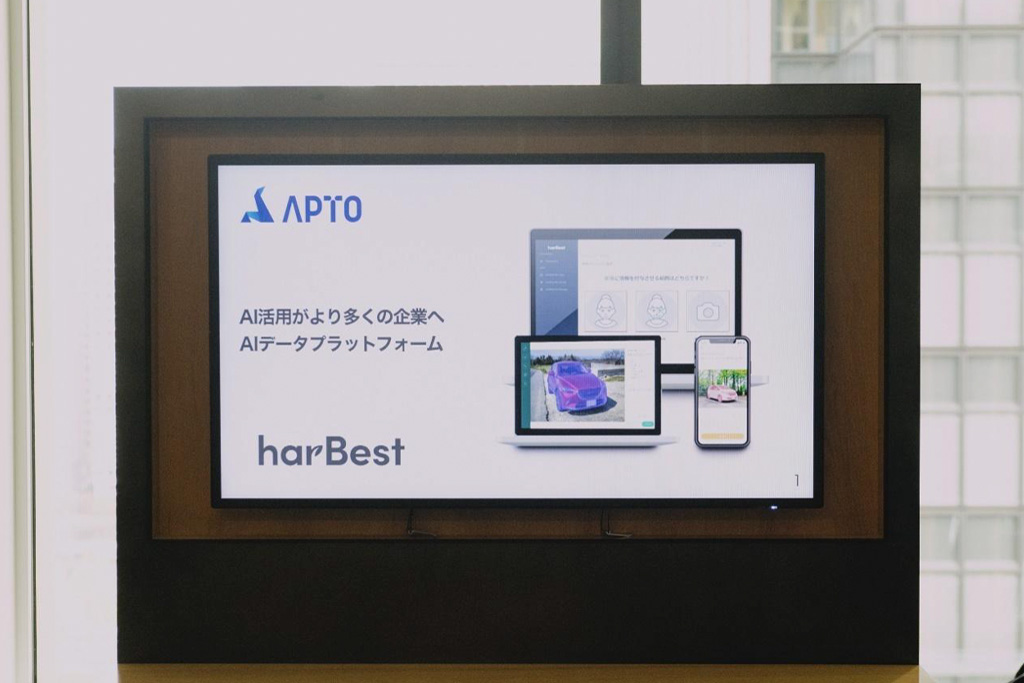
Date:Why did you decide to start such a service?
high quality:I am originally an engineer, and I had previously thought about creating an automatic flame detection service for SNS, but my initial experience was that it was difficult to collect the data necessary for AI. Since there were many cases where data collection was a bottleneck not only for me but also for other customers, I thought that creating data for AI might be a viable business.
Data is very important in AI. Recently, there have been news reports about a large number of overseas personnel creating data for chat GPT, and annotation for AI being performed in poor regions of China. Annotation is the process of adding correct answers to data. There are four processes in the AI flow: 4) data collection and creation (including annotations), 80) AI construction, XNUMX) embedding, and XNUMX) evaluation, and data is collected and created again based on that evaluation. However, it is said that collecting and creating data is the most time-consuming task, accounting for nearly XNUMX% of the total time. The work itself is simple, but essential for building AI.
Date: ``harBest'' is a service that allows general users to perform annotation. What kind of work do you do specifically?
high quality:For example, when building an AI that recognizes guardrails, it is first necessary to teach the AI the guardrails. Any human can understand guardrails, but AI cannot understand them unless they are first taught. For example, for a label such as ``There is a guardrail here,'' annotate it by enclosing it in a square. The service allows users to earn rewards by continuing to perform such tasks, and the data is used for AI training. It uses a system similar to the Poikatsu app provided through a smartphone app, and is designed to make it easy for workers to participate.
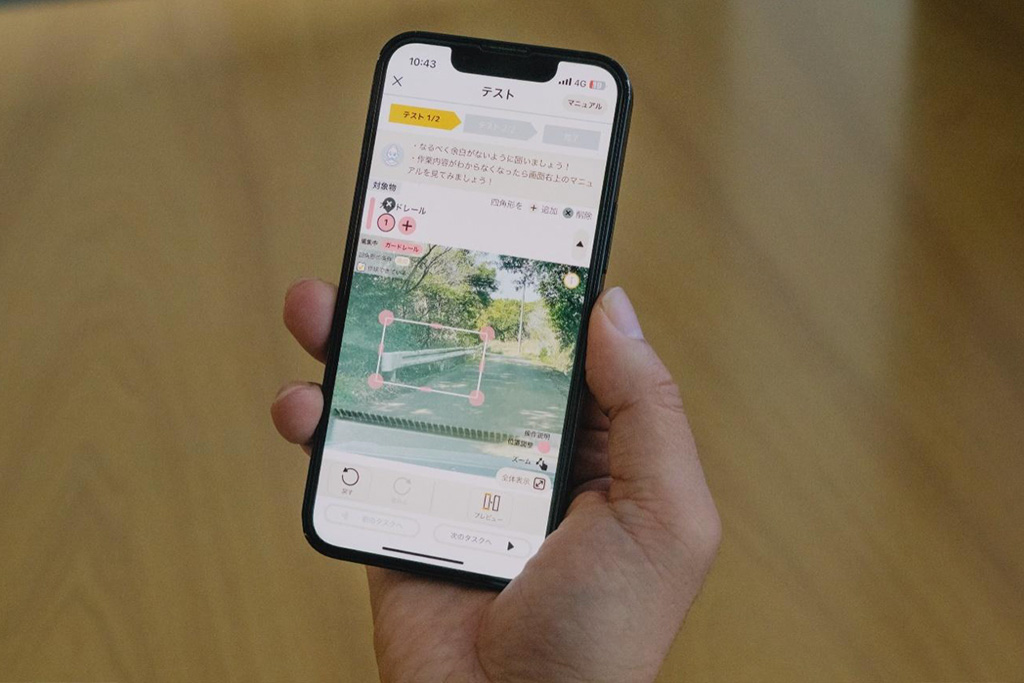
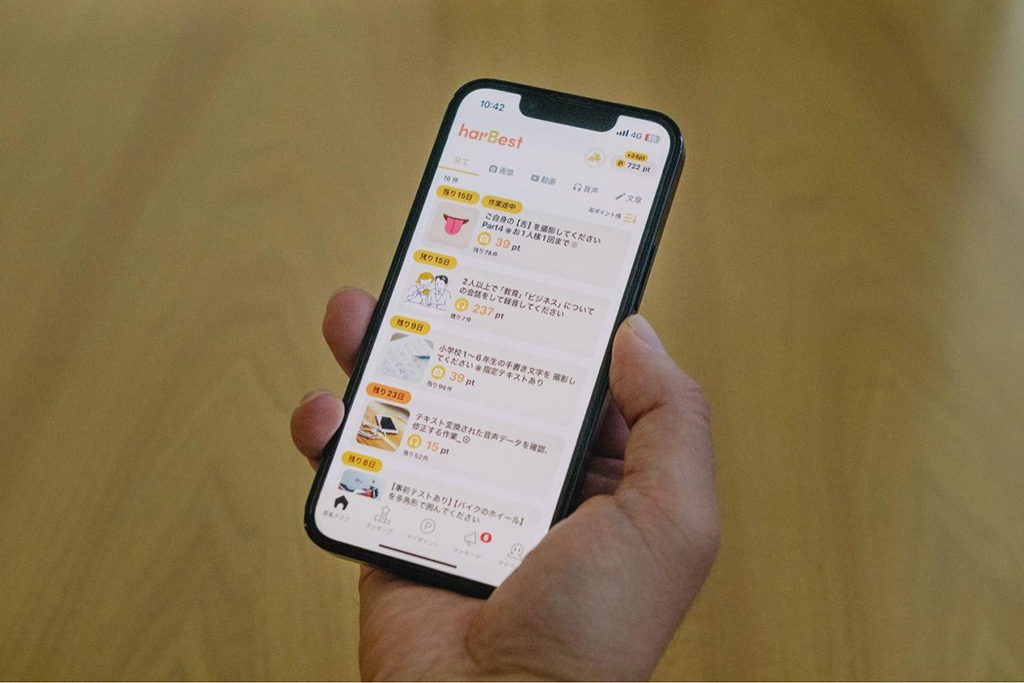
Many companies using AI face three main challenges. The first problem is that although the company has data, it is difficult to organize it. The second problem is that we want to proceed with the work, but there is a lack of manpower. The third issue is the lack of data. Surprisingly, highly paid AI engineers are sometimes involved in simple tasks such as ``drawing a square around the guardrail'' mentioned earlier. To solve this problem, we offer a service called ``harBest''.
Date: ``harBest'' is simple and easy to understand, so I feel that the strength of the service is that even general users can use it without stress.
high quality:I agree. However, although it is possible to do this if the data is not confidential, much of this data cannot generally be made public. In particular, customers in the manufacturing industry are often unable to disclose their data to external parties. Therefore, we also have a model in which we manage data and workers internally without leaking customer data to the outside, and ultimately deliver the product.
Date: How do you ensure data quality? How do you maintain high quality when working with general users?
high quality: If multiple workers participate in one data, for example, the worker on the far right is doing different tasks, there is a built-in system that will judge the data as unreliable. Furthermore, crowdworkers are evaluated using smart checker AI, and the points they can earn differ depending on the work they do. This motivates workers to work accurately.
Additionally, some of the data we handle requires particularly high security. Therefore, we refer to users who submit identity verification documents and non-disclosure agreements (ND) through the smartphone app as Pro users, and we completely in-house the data provided by these users as a BPO service. Security is also guaranteed.
Date:It's great for users because it feels like a game and they can earn some extra money in their spare time.
high quality: Two months ago, there were many users who earned about 1 yen in a month. I'd like to be able to increase it even more, but I think it's still one of the best earning apps out there.
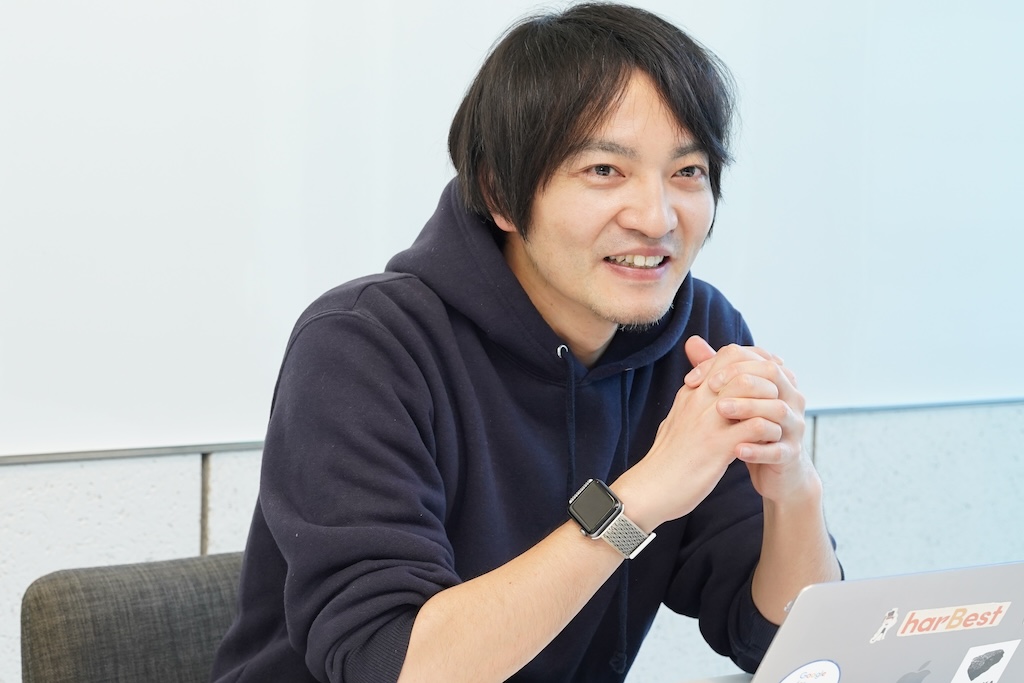
Date:thank you. Next, could you tell us about Daibic's business?
野呂: Our company operates an IT education business and an IT-related outsourcing business. In the education business, we operate the programming school "DPro", which operates in Japan and about 10 countries in Africa. We provide working adults aiming for a career change the opportunity to learn programming and build a career as an IT engineer.
Our company's corporate philosophy is to provide a path for everyone to succeed regardless of their attributes. When I asked myself, ``Where are the people with the most difficult attributes?'' I came to the conclusion that it would be Africa, where economic development is lagging behind. Many people in Africa are unemployed, but there are plenty of people who have studied computer science. Therefore, we have started to develop a service that provides outsourcing opportunities to talented human resources, while supporting them with a focus on IT education.
Date:What proportion of your company's outsourcing business does business in Africa account for?
野呂: 1% of the total. Although the mainstay of our business is still in Japan, Africa is a market we would like to actively expand into in the future. This is a new challenge for us, and we are placing importance on this as a new business field.
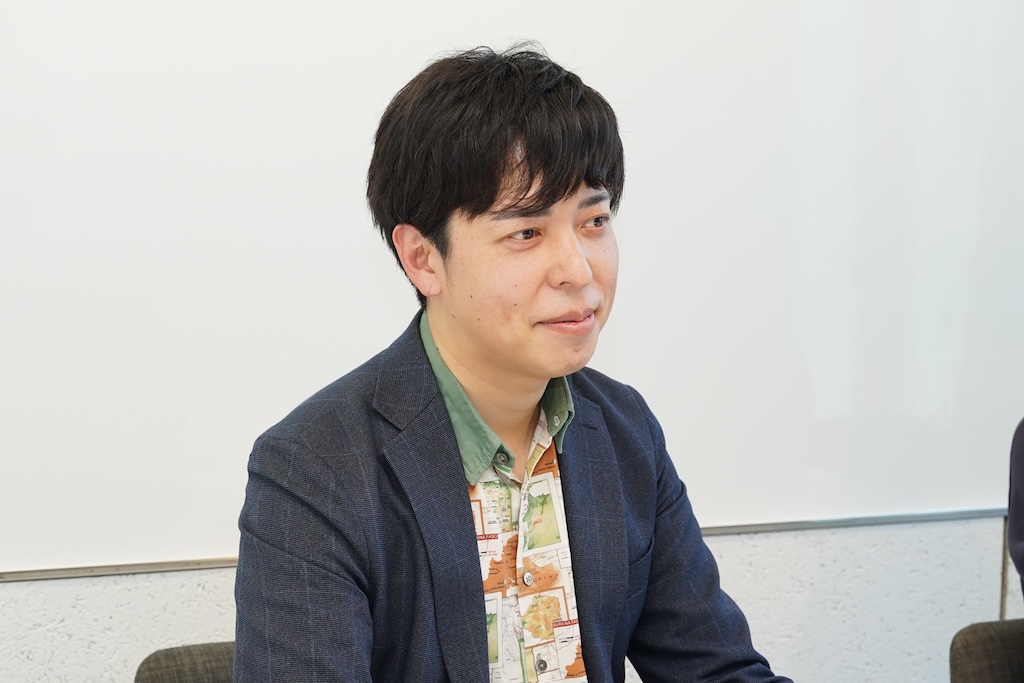
Date: When Tokyo Consortium holds events, we not only hold one-way lectures and seminars, but also provide opportunities for participants to interact with each other, such as networking sessions and workshops. The idea is that this will create opportunities to build connections with large companies and other startups, and APTO and Daibic first met at a Tokyo Consortium event held last year. Why did you join the Tokyo Consortium in the first place?
野呂: Since then, I have been interested in business networking with companies. In particular, Japanese companies looking to expand their business in English-speaking countries have the potential to connect with the aforementioned African IT talent. I think there are people in the Tokyo Consortium who can work with us to solve problems. I participated with the hope of forming connections with such companies.
high quality:As we progressed with our annotation business, we were often faced with cases where there were not enough outsourcing companies. When I was looking for a subcontractor, I met Mr. Noro, who runs a business in Africa, at the Tokyo Consortium. Companies that engage in annotation business are mainly located in Southeast Asia, such as Vietnam, but after meeting Mr. Noro, I began to consider Africa as a potential outsourcing destination.
Date:APTO and Daibic later developed into a business partnership, but did you have the impression from the beginning that it would lead to business?
野呂:When I first met Mr. Takashina, I was embarrassed to say that I didn't think that annotation had anything to do with my business. I had my eyes set on the main educational business and software development, and there was a time when I was particular about that, but when I actually heard about annotation from Mr. Takashina and the staff at APTO, I started looking into it. ``I changed my mind and thought, ``This could be an opportunity to create new jobs for the local people, and it might be the perfect match for Japanese companies to outsource at a low cost.'' I could really feel APTO's desire to take on new challenges, so I think APTO might be able to empathize with what we're trying to do, which is to provide job opportunities to Africa, and work with us. I felt that.
high quality: We often hear from startups operating in Africa, "Can you do annotation work in Africa?", but the business never actually moves forward from there. was. However, Mr. Noro's level of effort was different from the others. I believe that we were able to realize this business alliance because they worked with a firm eye on the future. I think it was Mr. Noro's strength as a manager that allowed him to follow through on his words.
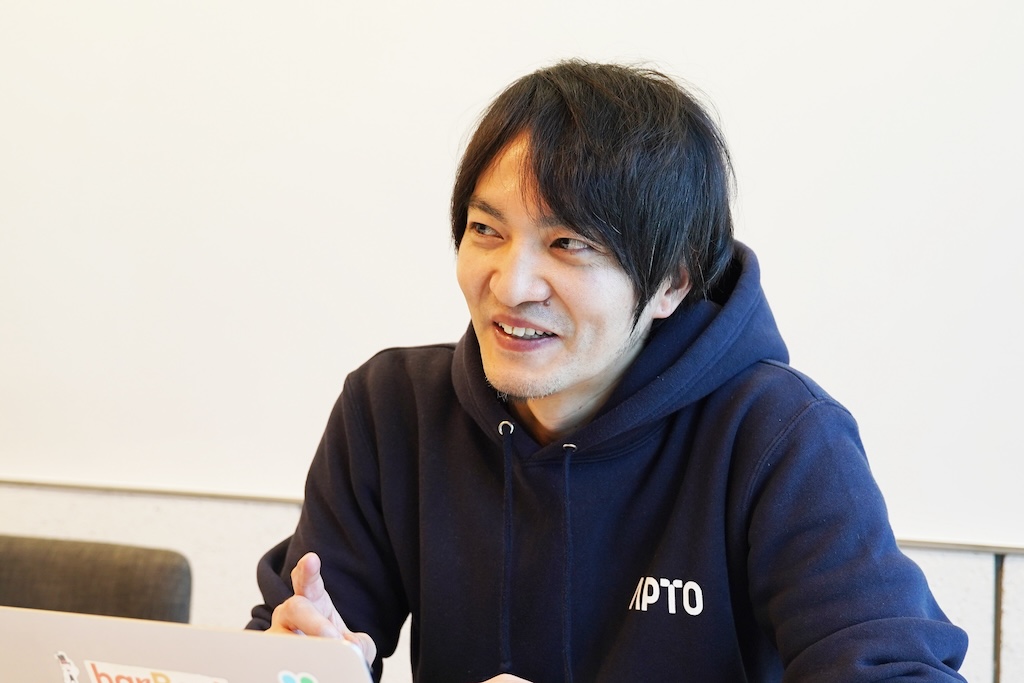
Date:Did you have any hesitation about asking someone from Africa to do the annotation work, even though this was unprecedented for APTO?
high quality: Quality is very important in annotation, and at first I was worried about whether we could ensure quality. However, quality is guaranteed if you have a well-organized team, not only in Africa but also in Japan. Admittedly, there were some parts that were a little difficult at the beginning, but as I gained experience, my accuracy improved and quality was guaranteed, and now communication has become smoother and I am able to proceed more efficiently. I feel that it has become.
Date:In terms of ensuring quality, Daibic must have gone through a lot of trial and error as this was his first project.
野呂:I agree. It was a big step for us to get involved in the annotation business for the first time through our business with APTO. This is probably one of the few cases in which an annotation project was transferred from a Japanese company to Africa. It is true that this was our first time working on this project, and we had not yet established a management process, so there were some inconveniences at first, but as we gained more experience, we We improved the parts that could be patterned to some extent, and as the process became more organized, things became more stable.
What is noteworthy is that the annotation work is being carried out by talented young people who have graduated from top-level local universities and who have learned machine learning and are capable of model development. This is a situation that is hard to imagine in Japan, and I think that in Japan, unless you pay them a high hourly wage, you won't be able to attract people like them. However, it is a valuable opportunity for them to be involved in a machine learning project that uses IT, and all the local members are happy about it.
Date:Specifically, which African countries were involved in this project?
野呂: Sierra Leone, Ghana, and Rwanda.
Date: Do the characteristics differ depending on the country?
野呂:It may be a coincidence, but my impression from our members is that the people in Sierra Leone are fast-paced, and the people in Ghana and Rwanda are calm and work one by one.
Date:The two of you have participated in Tokyo Consortium events several times, what impressions did you have?
high quality:The Tokyo Consortium seems to be putting a lot of effort into offline events. Startup-related events held in June 2023 (https://ecosystem.metro.tokyo.lg.jp/events/2023june-report/), and I felt that they were actively creating opportunities for us to promote ourselves, such as having a space to put up startup flyers and encouraging interaction among participants. I did.
Also, at this event, Yusuke Asakura of Animal Spirits LLC said, ``What startups want from large companies is money, money, money,'' and I think that's exactly right... Money really matters for startups. Not only the Tokyo Consortium, but I would like to see a system in which the government and Tokyo metropolitan government's budget for startup support is ultimately returned to startups. If it is structurally difficult to provide direct financial support, it would be nice if there was a system that could give more back to startups, such as increasing the prize money to 1,000 million yen for business awards held by the national or metropolitan government.
野呂: I have a strong impression that it connects people. I feel that the networking feature is very important at events like this, and more meaningful connections are often made than at other events. I think Mr. Date is conscious of the feeling that ``this person and this person will be a good match,'' and that is an added value of the Tokyo Consortium.
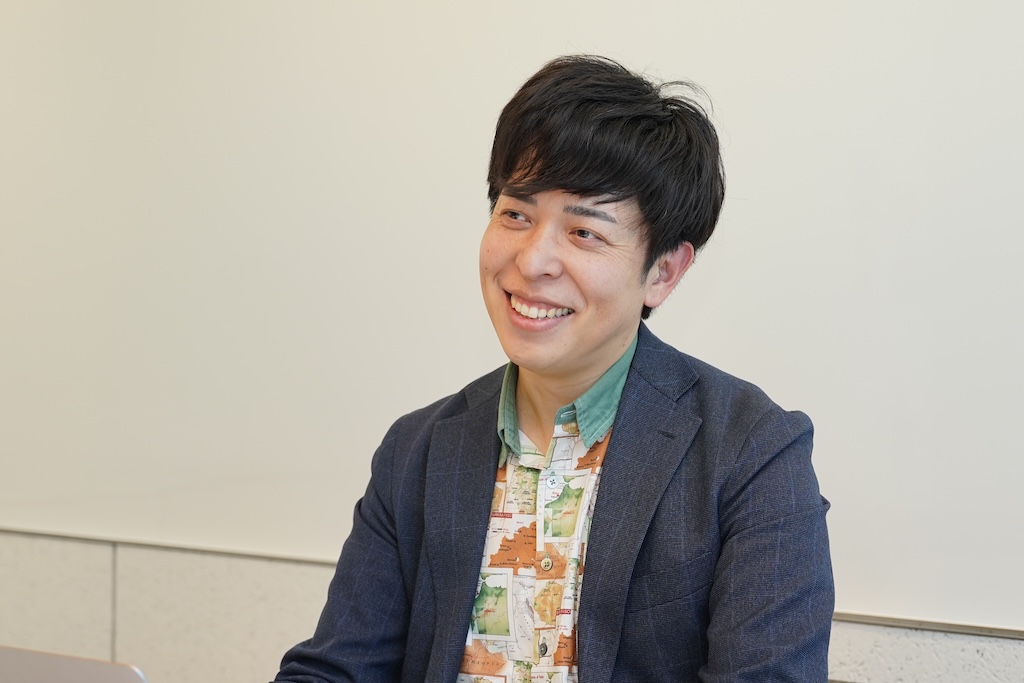
Date:That's right. If you leave it up to the participants to say, ``Now, it's networking time. Go ahead,'' it won't go very well. I think that is where we demonstrate our value.
Date: Tokyo Consortium is a platform to create an ecosystem that spans all startups, from seeds to later, and provides support in all directions. What are the two of you looking forward to from the Tokyo Consortium?
high quality:The most important thing for startups is acquiring customers. This is because if there are no customers, you may question whether there is really a need for the service. While receiving a lot of support from the Tokyo Consortium, I felt that it was extremely important for us to be able to introduce companies that would be a good match for our company. It may be difficult for all of them to be successful, but even if you introduce 10 companies and only one results in results, it can be an extremely important introduction case for a startup. There are various ways to introduce your company, such as events and personal networks, but we believe it is extremely important to introduce your company to a wide range of people.
Date:I also feel that people are looking forward to matching that will lead to sales. Mr. Takashina said "widely", but I believe that the value of the Tokyo Consortium is to effectively source and introduce companies and light people who are interested in the startup in question. I think it will continue to be necessary to provide opportunities for interaction where light people can actively participate.
野呂:I would like to see more measures taken from a startup perspective to connect with overseas markets. In the community I belong to called EO-Entrepreneurs' Organization, there are many business owners who are interested in overseas markets but have difficulty expanding into them. Managers sometimes travel overseas for training camps, but those are the only times they communicate with local companies. I think there are foreign entrepreneurs starting up businesses in Japan and startups coming to Japan from overseas, but I have very few opportunities to get to know them.
Date:So you want to increase your connections with inbound people.
野呂:I agree. I think it would be interesting to meet inbound visitors and connect with them to their home countries. Another thing I recently learned is that there is a community of foreign software developers living in Japan from developed countries called TokyoDev (Tokyo Developer Community). If we can connect with such people, I think we can encourage startups to establish development organizations overseas.
Date:I see. By connecting with a community like TokyoDev, you may be able to connect with their home country.
野呂:Also, when I look at it from a broader perspective, I feel that in the IT field, there is already a shortage of human resources if only Japanese people are involved. Many mega-ventures are already hiring foreign engineers. I think there are many companies that have a hard time taking the plunge, but if foreign engineers living in Japan had a little more contact with Japanese startups, they would be able to say, ``If you try it, you'll be surprised that even overseas engineers can do it.'' I feel like I'll be able to understand it.
Date: The consortium is also trying to have people from overseas who have come to Japan speak at events, but so-called matching has not been done yet, so I would definitely like to consider that.
Date:Finally, could you both give a message to those who are considering joining the Tokyo Consortium?
野呂:I don't know where unexpected connections will come from. This relationship with APTO would not have been possible without our participation in the Tokyo Consortium. It's not easy to find a good match, but there are places where you can show off what you're doing, or listen to what the other person is doing, and find something you can do together. I think there are also benefits from a business perspective. It's not just a business card exchange event, but when people who have an awareness of issues around a specific theme get together, they connect by saying, ``Although it's not directly related to me, there are other things to talk about.'' I felt it was possible. If you are considering joining the Tokyo Consortium, why not visit one of our events and find out for yourself?
high quality:I think there is a possibility of meeting people that you would not normally meet. Like the Yusuke Asakura event I mentioned earlier, I don't think you would know about the existence of the event if you weren't part of the Tokyo Consortium. I think there are things that you can discover just by being a member of this group, so it might be a good idea to participate so you don't miss out on the opportunity to connect with such valuable events.
![Ryo Takashina [right in photo] (APTO Co., Ltd.) and Hiroyoshi Noro [left in photo] (Daibic Co., Ltd.)](https://ecosystem.metro.tokyo.lg.jp/wp-content/uploads/2024/04/TYZ05618-2.jpg)
Hiroyoshi Noro
Representative Director of Daibic Co., Ltd.
Born on International Cooperation Day and raised in Yokohama. After working in sales and corporate sales, he passed Works Applications' problem-solving ability discovery program at the age of 29, despite being a non-engineer with no development experience. After that, he founded the programming school "DPro" in 2015 to solve the shortage of IT engineers that he felt during the process of becoming independent and starting a business. He aims to bring IT education and employment opportunities to every country in the world. In August 2017, we started training IT engineers in the Republic of Rwanda in Africa. We produce graduates who work as IT engineers. In 8, won the 2020th GLOBIS Kare Alumni Award in the creative category.
High quality (Takashina Ryo)
APTO Co., Ltd. Representative Director
After majoring in business engineering at university, he was involved in infrastructure construction and back-end development for major core systems as a system engineer. In 2017, he became independent in the VR business and develops entertainment VR content. Co-founded APTO in January 2020 after sensing issues with AI data creation.